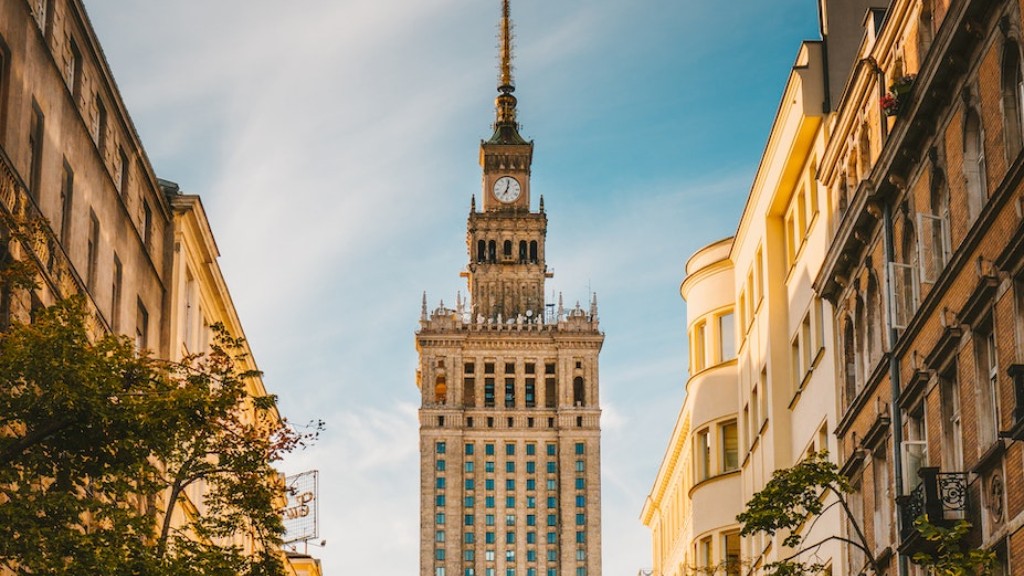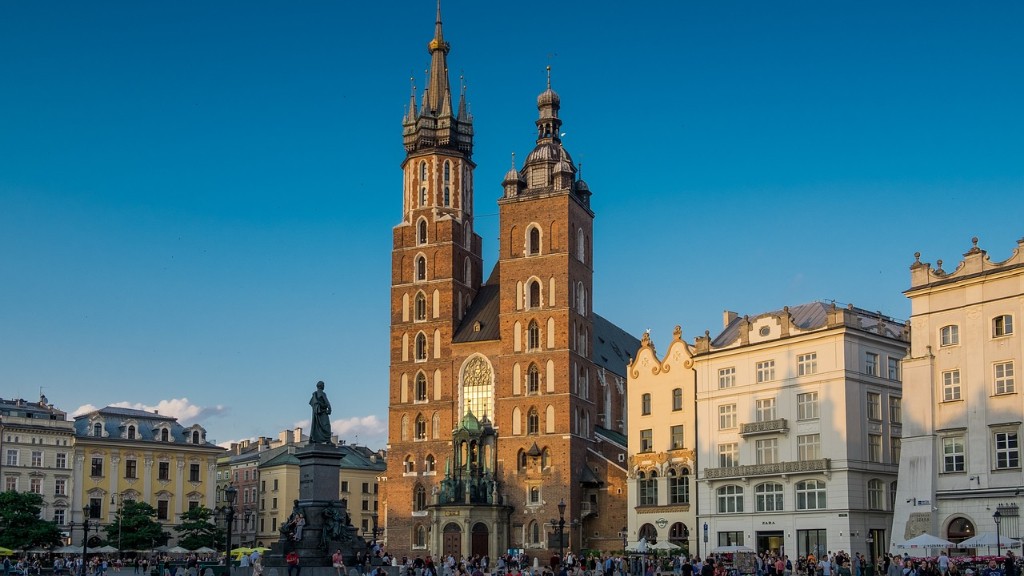Poland was a major target of Nazi air raids during the Second World War. Between 1 September 1939 and 6 May 1945, more than 4,300 air raids were launched against Polish cities and towns. This led to the deaths of over 75,000 civilians and the destruction of large parts of Polish infrastructure.
During the Invasion of Poland in September and October 1939, German air forces unleashed two rounds of aerial bombings. The first attack was directed at the port city of Gdansk, with subsequent attacks targeting other Polish cities. During the course of the war, German bombing raids mainly targeted major industrial centers, railway junctions, seaports, and airfields as well as military installations.
The most devastating air raid took place on the night of 1-2 September 1939 when the city of Wielun, one of the oldest cities in Poland, was indiscriminately bombed by the Luftwaffe. This air raid was the first major city bombing of the war, and resulted in the deaths of approximately 1,300 civilians and the destruction of 90 percent of the city.
The German air offensive against Poland during the war caused the destruction of over 500 Polish historic buildings, industry, and transportation networks. The devastation wrought by the Nazi bombing campaign is estimated to have cost the Polish economy between 1.5 and 1.8 billion zlotys.
Aside from damage to infrastructure and loss of life, the bombing campaign also had a major psychological impact on the Polish population. According to testimonies of civilians, the police, and doctors, fear and anguish were strong. This led to a rise in the number of suicides and psychological disorders, with many Poles unable to cope with the suffering caused by the Nazi campaigns.
Economic Impact of the Bombing
The bombings inflicted extensive damage to the Polish economy on local, regional, and national scales. Across the country, hundreds of factories were destroyed or damaged, limiting the production of goods and services. In certain regions, entire industries were wiped out, leaving thousands of workers unemployed and without any means of support.
Polish infrastructure, including railway networks, was hit hard by the German bombing campaigns. This caused significant disruptions in the delivery of raw materials and other goods essential for industry, further exacerbating the economic damage caused by the war and resulting in a shortage of essential goods.
The destruction of transport networks also led to a significant decrease in the mobility of Poles, limiting their freedom of movement and access to essential services. This further compounded the economic impacts of the bombings, resulting in a decrease in economic wealth and living standards.
Political Impact of the Bombing
The destruction inflicted by the Nazi bombing campaigns had a major political impact, as it served to strengthen the Nazi occupation of Poland. The psychological and economic impacts inflicted by the bombing campaign resulted in further despair and disillusionment among the Polish population. This led to a decrease in popular support for the Polish resistance movement, allowing the Nazi occupation to continue without any major opposition.
The extensive damage caused by the bombings also led to a decrease in the political legitimacy of the Polish government. This served to undermine the authorities’ authority and limit their ability to effectively govern, resulting in further chaos and disorder in postwar Poland.
Additionally, the widespread destruction caused by the bombings further weakened the position of the Polish people in their fight for independence and served to legitimize the Nazi occupation.
Modern Repercussions of the Bombing
The bombing of Poland during World War II left a lasting legacy that is still felt in modern-day Poland. Large parts of the country’s industrial capacity were destroyed during the war, leading to slower economic growth and slower rates of technological development.
The widespread destruction of infrastructure also left many towns and cities with limited resources and often outdated technology. This has further hindered economic progress and has resulted in poverty and inequality in certain parts of the country.
Additionally, the psychological impact of the bombings has been felt by many Poles, resulting in trauma and feelings of despair among those who lived through the war. This has led to a further sense of alienation and disconnection among many in modern-day Poland, and has resulted in some groups feeling forgotten by their government.
International Response to the Bombing
Following the end of World War II, the international community’s response to the bombing of Poland was largely one of condemnation. The destruction inflicted by the Nazi air raids was seen as a violation of the laws of war and many governments, including the United States, expressed their disapproval.
The United Nations Commission on Human Rights also carried out a thorough investigation into the bombing of Poland. The commission concluded that the air raids had been carried out with disregard for the safety of civilians and called for an end to such attacks in the future.
In addition to condemnations from the international community, many countries provided political and financial support to help Poland rebuild following the end of the war. This assistance helped to rebuild the country’s infrastructure and promote economic growth, an integral step in Poland’s post-war recovery.
Conclusion
The bombing of Poland during World War II left a devastating legacy that shook the country to its core. Several cities and towns were destroyed, thousands of lives were lost, and the country’s economy suffered extensive damage. The psychological impact of the bombing campaign is still felt by many Poles today.
The international community’s response was largely one of condemnation, and many countries provided support for Polish recovery efforts. Despite this, the bombing of Poland during World War II continues to have repercussions that are felt in modern-day Poland.




